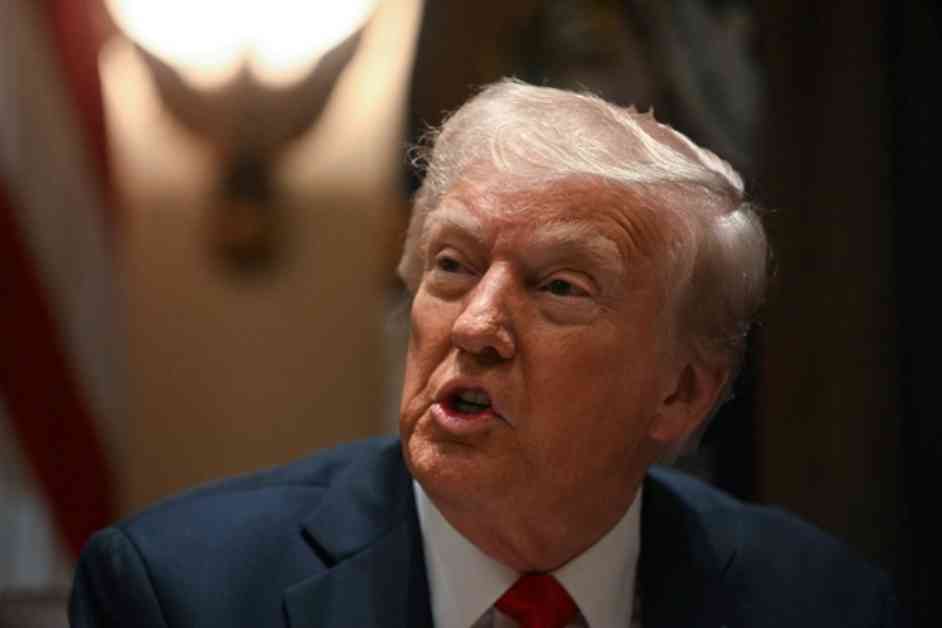During a recent Cabinet meeting, US President Donald Trump stirred controversy by announcing that the United States would not be providing security guarantees to Ukraine in future peace negotiations. This unexpected declaration has sparked discussions and raised questions about the implications for Ukraine’s security and international relations moving forward. Trump’s decision to shift the responsibility of security guarantees to Europe has left many wondering about the potential consequences for Ukraine and its relationship with the US.
Trump’s Unconventional Stance
In response to a reporter’s inquiry regarding the nature of security guarantees the US was willing to offer Ukraine, Trump deflected the responsibility onto Europe, citing their geographic proximity to Ukraine as a reason for them to take the lead. This move caught many off guard, as it deviates from the traditional role the US has played in global security matters. By refraining from extending security assurances to Ukraine, Trump has introduced a new dynamic to the ongoing peace negotiations and raised concerns about the future stability of the region.
During the meeting, Trump also alluded to a forthcoming mineral agreement between the US and Ukraine, hinting at President Volodymyr Zelensky’s planned visit to Washington for the signing. The mention of rare earth elements in the deal added another layer of complexity to the situation, highlighting the strategic interests at play beyond mere security concerns. Trump’s emphasis on the importance of rare earth elements for the US economy shed light on the multifaceted nature of international relations and the interconnectedness of global resources.
Implications for Ukraine and Beyond
Ukrainian Prime Minister Denys Shmyhal emphasized the link between security guarantees and the mineral deal, underscoring the interdependence of economic and security interests in international agreements. Trump’s dismissal of Ukraine’s NATO membership aspirations further complicates the situation, as it aligns with Russian narratives and raises doubts about the US commitment to broader security alliances. The rejection of NATO membership coupled with the reliance on European peacekeepers signals a shift in US foreign policy priorities and a reevaluation of its role in global security architecture.
Trump’s willingness to entertain the idea of European troops serving as peacekeepers in Ukraine introduces a new element to the conflict resolution efforts in the region. By acknowledging the offers of countries like the UK and France to contribute troops, Trump opens the door to a more collaborative approach to peacekeeping, albeit with potential implications for sovereignty and regional dynamics. The prospect of European peacekeepers on Ukrainian soil represents a departure from traditional security arrangements and reflects a broader realignment of international partnerships in the face of evolving geopolitical challenges.
As the discussions around security guarantees for Ukraine continue to unfold, the implications of Trump’s statements reverberate beyond the region, shaping the future of US foreign policy and global security dynamics. The intersection of economic interests, strategic partnerships, and security concerns underscores the complexities of international relations and the need for nuanced approaches to conflict resolution. The evolving landscape of security arrangements in Ukraine signals a broader shift in the geopolitical landscape and calls for a reevaluation of traditional security paradigms in the face of emerging threats and challenges.

















